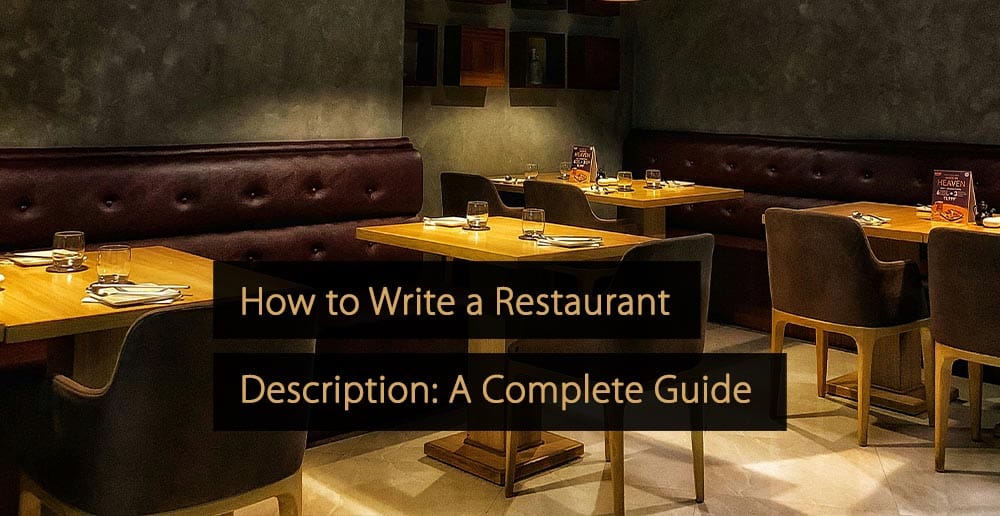Question for Our Hotel Marketing Expert Panel
How can hotel chatbots best contribute to a contactless / low-touch guest experience?
Industry Expert Panel
Our Industry Expert Panel exists out of professionals within the hospitality & travel Industry. They have comprehensive and detailed knowledge, experience in practice or management and are forward-thinking. They are answering questions about the state of the industry. They share their insights on topics like revenue management, marketing, operations, technology and discuss the latest trends.
Our Marketing Expert Panel
- Dr. Betsy Stringam-Bender – Professor of Hotels & Resorts, New Mexico State University
- Tamie Matthews – Revenue, Sales & Marketing Consultant, RevenYou
- Andrew Kavanagh – Group Sales and Marketing Manager, FBD Hotels & Resorts
- Reshan Jayamanne – Digital Marketing & Sales Strategist, Bnb Optimized
- Amy Draheim – Owner, ABD Creative
- Alessandro Inversini – Associate Professor of Marketing and Director of the Institute of Customer Experience Management, Ecole hôtelière de Lausanne
- Susanne Williams – Performance and Revenue Director, Journey Hospitality
- Nicole Sideris – Founder & Prinicipal Consultant, X Hospitality
- Jacopo Focaroli – CEO & Founder, The Host
- Sarah Dandashy – Travel & Hospitality Expert, Ask A Concierge
- Daphne Beers – Owner, Your-Q Hospitality Academy
- Angelique van Lith – Marketing & Revenue Consultant, Avl Hotel Consultancy
- Grazia Dell’Aquila – Hospitality Consultant, IAMGRAZIA
- Ask Our Panel a Question
- Join Our Expert Panel
“When guests are seeking basic information, such as check-out time, hours of operation for restaurants and recreational facilities, a chatbot can quickly answer these questions, allowing hotel employees to focus on other guest requests and service. The key is to also provide an option for “the answer is not satisfactory, or I still have questions” which then connects the guest to a live agent who can further help guests.
Other technologies can also help deliver more information to guests to improve on-property sales, such as a QR code for the restaurant menu. This next generation will not call and inquire; instead, they will seek information using their mobile devices.”
“Chatbots can contribute in the following ways:
- Cut Costs. We are all looking at ways to decrease labour spend and save money. Use a chatbot that has Artificial Intelligence to take care of the basics for you. People are becoming more and more confident to talk to robots and anecdotal evidence shows that people will feel braver to ask what they perceive to be a silly question and hence get the answers they need.
- Be creative. Use your chatbot in different ways. At one hotel we were constantly getting requests to book car parking. We set up a “room type” on the Booking Engine that is Car Park and now the chatbot can feed guests through to book. This has cut the need for phone calls and increased bookings for the car parks we have that were sitting idle.
- Choose carefully. Ensure it is a chatbot that is programmable and learns. Don’t select the cheapest chatbot. Get one that you can teach and will do the work for you.
- Turn it on. Ensure that the chat functionality is on and test it regularly. What questions is it not answering and why? Does it need to be re-programmed? I see far too many hotels that are paying for chat and yet it cannot answer a simple question like “does the room have a hairdryer” or a receptionist has turned it off as they got annoyed by the pinging and didn’t want to bother with it.
- Contactless. Our world changed immeasurably in March 2020. Humans went from wanting to see people to wanting to stay far far away from any other human and as such we learned to use technology. Contactless is no longer scary, so review the tech you are using and see how you can push it further. Educate your customers as to why you are using tech in the way you are and sell it to them as something for their own good. Recruiting staff is a major issue across all areas of our industry right now so we need to use what we can. One owner I work with owns 2 hotels within 5km of each other. They have reduced reception staffing across the two hotels by 75% through the introduction of SMS messaging. Each guest receives a message at 2pm telling them their room number, door code, wifi code and emergency contact number. One duty manager floats between the 2 hotels and lives in so is on call to help. These two hotels changed 4 reception shifts into 1 duty manager shift plus $49 per month for SMS messaging.”
“Chatbots are certainly a fast-changing and improving tool for hoteliers and guests. I’ve had some experience of early-stage versions which were quite primitive but even then, you could see how they were learning and developing. They work for certain types of guests more than others. A corporate guest who knows what they want, might have a direct question where a chatbot can save them considerable time browsing the entire website. We are now seeing it form part of the online check-in, which in itself makes that process much more efficient and convenient.
From the hotelier’s point of view, the chatbot can often help you identify high potential business opportunities that you might have otherwise lost. For example, an overseas guest on the other side of the world browsing your website at 2am local time, helping that guest with a query for their long-stay, or at the very least, making a record and collecting the contact details for a human agent to contact them as soon as possible.”
“Chatbots are a great way to extend the same high level of customer service and excellence in an automated, 24/7 manner online. Its best use is to get the customer the information they need as fast as possible.
Most chatbots are catering to find a booking online. This is fantastic and achieves 80% of the result. I would advise that chatbots are used to benefit the client by going beyond the hotel and helping them find local information, tour locations, common tourist landmarks and so on. These can be given to the audience with an opt-in required to help them decide if your hotel is the best place for them to stay. This is an online concierge experience without the demand for a heavy tech stack.
With the rise of contactless payments and online shopping increasing by 44% during covid compared to 15% in 2019, I strongly feel that you will find fewer people booking at the hotel or on the phone and more simply wanting to check-in at your front desk. The sooner you embrace this change, the better positioned you are for the post Covid-19 world.”
“When it comes to getting your message out to guests, text messaging is effective and it’s no longer considered invasive. Text messaging can be used while your guests are on-property and for Life Cycle communications after a guest has departed. I advise not to overuse this feature post-departure, as guests will probably respond better to emails than text messages following a stay.
During a stay, a text message can be very effective. I suggest providing the texting phone number to the guest upon arrival, so that they’re able to unlock this feature if it interests them. This allows you to be less invasive. For guests who appreciate this touch, use text messages as a virtual concierge service – providing recommendations, running amenities to their room, and answering questions on demand.
On Hilton Head Island, a hotel I worked with did this extremely well. The text messaging concierge had a name, ”Ivy,” and “she” created continuity. If I was out at the beach, I could text Ivy and request towels sent to my room. I could ask about where to find a great mojito or if I had enough time to bike out to a specific spot to watch the sunset. I thoroughly appreciated this service. There are plenty of competitors doing the same, and you could designate an iPad at the front desk and manage a virtual concierge on your own.”
“Chatbots are an interesting tool as long as they are properly designed and powered by a good AI engine. I think they can be useful as a first point of contact, but now customers will be more selective and therefore need more ‘high touch’ and relationship building.
I think that rather than investing in chatbots, hotels should invest their efforts in relationship building after the pandemic to show that they genuinely care for the customers. This is what people who have experienced the difficulties of pandemic lockdowns and the challenges of restrictions will now expect as they return to travel.”
“For me, a chatbot can really improve your direct channel conversions. As technology advances, personalising responses and AI can respond to inbound enquiries in seconds. Choose a chatbot that connects to your inventory, can understand nuance and guest requests and learns as it goes! When you respond immediately to a guest request, the likelihood of the guest booking increases.
Chatbots can cross channels, giving the same consistent seamless experience. I would always consider core brand values, chatbots have their place and coupled with good old fashioned hospitality can improve your direct conversions.”
“I have created an end to end fully digital hotel in Bondi Beach, Sydney. The key is technology integration with a user experience that is seamless and friendly. As travel becomes increasing mobile-centric, hotels have become driven to adapt better mobile apps to drive engagement. AI chatbots are a great way to offer instant responses to guest requests, and if done well, they can truly enhance the guest experience. However, it can be difficult to find the right type of AI that will grasp different languages, abbreviations and slang.
My preference is to provide human interaction and alleviate the risk of causing frustration to the guest if the proper intel is not configured. I have recently outsourced after-hours care for a property using a call centre where the interaction and guest requests are not compromised.”
“The hospitality industry is, unfortunately, lagging behind in this area compared to other industries, although contactless, affordable and faster technologies are finally spreading everywhere. Chatbots allow us to measure, centralize and optimize guest service, avoiding, for example, the ever-ringing phones at reception.
They also help us boost guest recognition prior to arrival, guest profiling activities, disengaging the email-load – i.e., all those things where technology comes in to help us focus on what really matters: the guest.”
“Chatbots can be a very useful tool for hotels to answer the simple, static day-to-day questions coming from guests. By static, I mean questions like the opening hours of the gyme or the swimming pool, the restaurant menus, requesting an extra pillow, etc.
Guests know that these are simple questions and requests – but by giving them immediate answers to what they’re looking for, it opens up more time and space for hotel staff to help them with more detailed questions or support them in personalized interactions with the human touch.”
“In my experience, chatbots can be best used to provide information and answer general requests, perfect for a first contact and a timely response. People who are actively seeking contact with you or your company are not looking for a contactless experience! They are the ones who want interaction, a human touch and are looking to connect.
This is the ideal type of guest to build a relationship and connect with, deliver true service and up-sell / cross-sell. Use these opportunities to create fans for life; which a chatbot will never be able to do!”
“Chatbots are a perfect addition to the larger hotels, if you use them well. For hotels with a lot of guests, it is a great addition to help avoid queues for the reception. However, regardless of how guests check-in or out, I think you should never forget the keywords within the hospitality industry: service, hospitality and personal attention.
So stay creative, even with the use of a chatbot, and make sure that guests experience it as personal or that it contains a fun part which can put a smile on your guests’ faces, even without a personal contact. You can already distinguish yourself by adding a fun factor or personal note.”
“The use of chatbot technology is certainly a competitive advantage for hotels and can lead to a contactless guest experience. Customers are looking for safe experiences and the contactless experience can provide it. Through chatbots, guests have the opportunity to get in touch with hotels at any time and with any tool they wish to use.
Chatbot technology, thanks to artificial intelligence, can respond to many requests and clear doubts. I always highlight the importance of how the pre and post-stay interactions must be strengthened to build customer loyalty and generate guest retention. The idea of developing an intelligent, hospitality-friendly chatbot can help to close the gap between staff and guests, and as a result, improve reputation and increase sales.
Once the gap is closed, it helps ensure efficient communications amongst the team, empowering them to collaborate and focus better on the experience of the guests during the stay, work more efficiently with improved coordination and greater attention to guests.
An innovative ‘contactless’ experience allows you to apply new security standards and helps understand guest behaviour at every stage of their customer journey and personalize their experience. Contactless service can broaden the experience by anticipating guests’ needs, exceed their expectations and create new revenue opportunities. Let’s think about high-touch services like voice communications integrated into digital services, the high-quality services reserved for guests on mobile devices and in smart rooms, 24/7 eConcierge services on mobile devices or secure connectivity anytime.
One example of how chatbots have worked well was Best Western Italy’s launch of their “Best Friend” chatbot in 2014. An active chatbot on Facebook Messenger, it was designed to facilitate conversations with guests and introduce new spaces for relationships and multi-channel experiences. As a result, in 2017 Best Western was on the podium in KPMG’s research on the best customer experience management companies. Being second in Italy to an e-commerce giant such as Amazon was a huge result.”
Ask a Question & Join Our Expert Panel
Would you like a question to be answered by our Industry Expert Panel? Or would you like to join our community of experts and share your experience, insights, and knowledge with fellow industry professionals? Via the buttons below you can submit a question or submit a request to become part of our expert panel.
More Tips to Grow Your Business
Revfine.com is the leading knowledge platform for the hospitality and travel industry. Professionals use our insights, strategies, and actionable tips to get inspired, optimize revenue, innovate processes, and improve customer experience.Explore expert advice on management, marketing, revenue management, operations, software, and technology in our dedicated Hotel, Hospitality, and Travel & Tourism categories.




















Leave A Comment